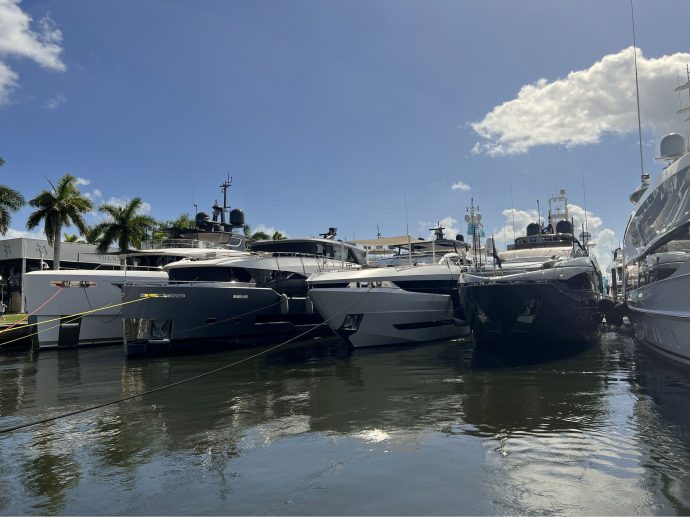Categories more
- Adventures (17)
- Arts / Collectables (15)
- Automotive (37)
- Aviation (11)
- Bath, Body, & Health (77)
- Children (6)
- Cigars / Spirits (32)
- Cuisine (16)
- Design/Architecture (22)
- Electronics (13)
- Entertainment (4)
- Event Planning (5)
- Fashion (46)
- Finance (9)
- Gifts / Misc (6)
- Home Decor (45)
- Jewelry (41)
- Pets (3)
- Philanthropy (1)
- Real Estate (16)
- Services (23)
- Sports / Golf (14)
- Vacation / Travel (60)
- Watches / Pens (15)
- Wines / Vines (24)
- Yachting / Boating (17)
Published
09/01/2025 by Megayacht NewsA new industry survey from Megayacht News reveals that accessibility is increasingly important for superyacht buyers and charterers, while also highlighting physical challenges at international boat shows. The study is the first known effort to quantify how often clients request accessibility features aboard yachts, and to assess how well yacht shows currently accommodate guests with disabilities.
Middle-aged and older adults represent a significant portion of superyacht buyers. According to the World Health Organization, 20 to 25 percent of adults ages 45 and older globally live with a mobility disability. Reflecting this, 78 percent of survey participants, including superyacht builders, designers, and brokers, reported meeting clients with disabilities or disabled family members in the past five years. Additionally, 65 percent have directly assisted in ensuring a client took delivery of a suitable, accessibility-oriented project.
The most commonly requested accessibility amenities include:
- Elevators (79%)
- Wider doorways and passageways (68%)
- Wheelchair-suitable gangways (65%)
- Lower countertops and larger showers (53%).
The survey further examined client interactions at and attitudes toward boat shows. Only 32 percent of accessibility-focused client conversations occurred at these events, while 42 percent of respondents indicated customers consider boat shows physically difficult to navigate. Primary obstacles include non-wheelchair-friendly docks, inaccessible tenders, and limited transportation assistance within venues. As one respondent, who has a daughter reliant on a wheelchair, wrote, "What able-bodied people think is accessible and safe for disabled people is often far from it," mentioning ramps meeting docks unevenly and crowds.
When asked about potential solutions, industry professionals identified several measures they believe are both practical and beneficial:
- Reserved golf carts for disabled attendees (72%)
- Disabled-accessible restrooms (68%)
- Wider, more stable docks (56%)
- Disabled-accessible tenders (54%)
- Increased seating throughout show areas (54%)
"These findings provide the first measurable proof that accessibility holds sway in yacht buying and the overall yachting experience," said Diane M. Byrne, editor of Megayacht News. "They also show that clients and their families are raising these issues with regularity, so addressing their needs is not just the right thing to do, it's imperative."
















